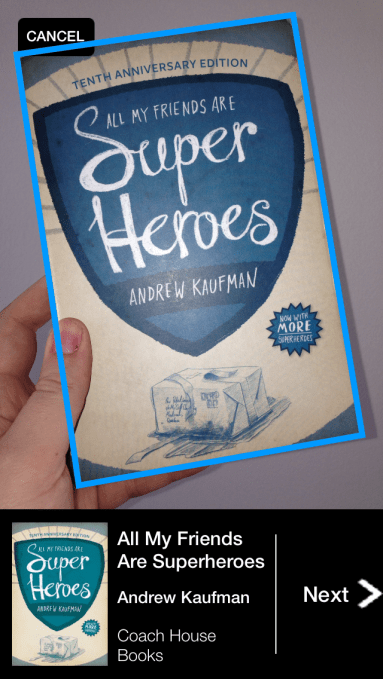Chances are, you’ve got a good number of those old-school physical books in your house but have mostly moved to e-books at this point. What if you could potentially get a cheap or free e-book copy of some of those books? That’s what BitLit promises its users.
The Vancouver, Canada-based startup is working with publishers directly to offer readers discounted or free e-book versions of the physical books they already own. In addition, BitLit makes it easier for publishers to bundle e-books with their physical books.
The service is currently available in the US, Canada and UK.
The company today announced that it has raised a seed round from Kobo’s founder and former CEO Michael Serbinis’ new Three Angels Capital, as well as from BDC Venture Capital, WUTIF’s Mike Voker and Vancouver super angel Jim Fletcher. Sadly, the company declined to reveal the actual funding amount.
 For readers, the value of a service like BitLit is pretty self-explanatory. When it comes to publishers, the company promises that its service can lead to incremental revenue for them. It also notes that its bundles will make bricks-and-mortar bookstores a bit more relevant again because it allows shoppers to find both print and digital books.
For readers, the value of a service like BitLit is pretty self-explanatory. When it comes to publishers, the company promises that its service can lead to incremental revenue for them. It also notes that its bundles will make bricks-and-mortar bookstores a bit more relevant again because it allows shoppers to find both print and digital books.
As BitLit’s CEO and co-founder Peter Hudson told me earlier this week, publishers are especially interested in the company’s solution because it can turn the current “showrooming” problem bookstores often face into an advantage. Shoppers in traditional bookstores, it turns out, are also more likely to leave with a book they’ve never heard of compared to online shoppers, so publishers who want their books to be discoverable need to be available in brick-and-mortar stores. At the same time, shoppers are far more likely to buy a book if they can also get the e-book at the same time.
So far, the company has signed up about 80 publishers, including O’Reilly, Other Press, ECW Press, Osprey Group, Greystone Books, and Berrett-Koehler. This gives it access to about 10,000 e-books and 30% of them are free if you own the print copy or purchase them with a print edition. “We know that without a compelling title list user’s won’t see value in our service, in the same way that Netflix would be an interesting video streaming codec if it wasn’t able to get deals with movie studios,” Hudson told me. The company expects to be able to announce a number of new publishing partners on board.
To avoid fraud, the service’s mobile apps for iOS and Android have you scan the book’s cover and then you have to write your name in capital letters on the copyright page and take a picture of that, too. I’m sure some intrepid student will find a way to cheat this system to get free or discounted books, but the company argues that its system works well to prevent freeloaders from abusing it. Once you’ve verified your purchase, the company will email you with a link to the e-book.
